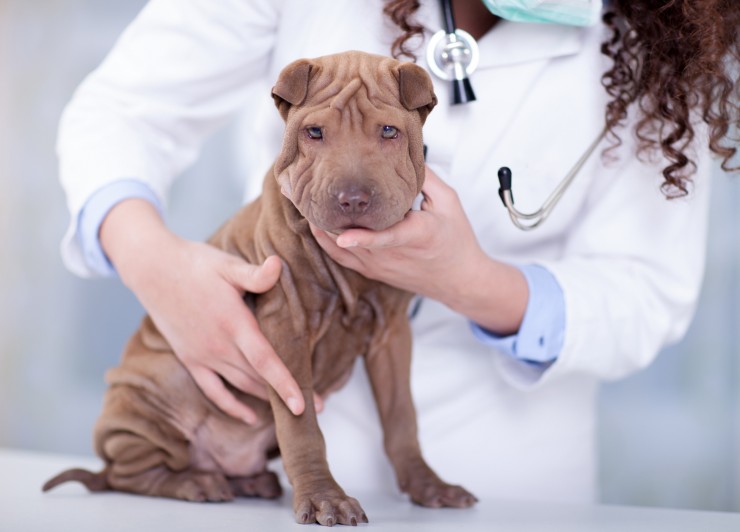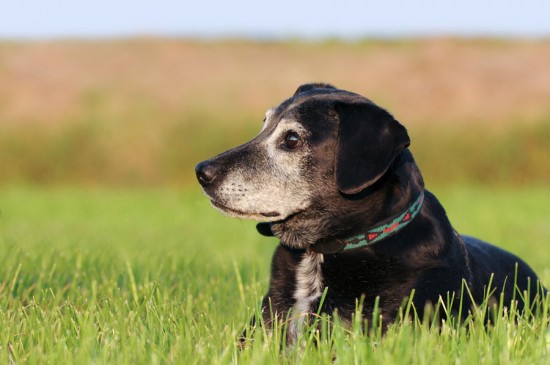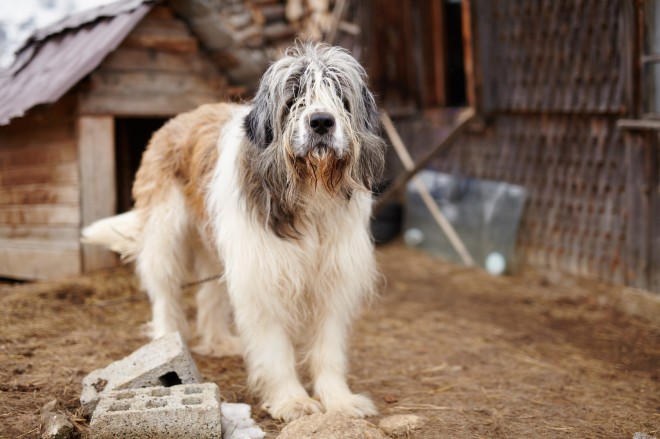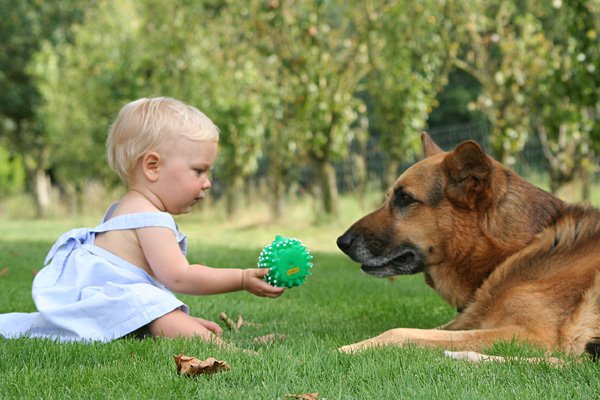

When you take your dog along to the vet, the chances are that you build up a relationship with the veterinary surgeon that treats your dog, know them by name and rely on them for your dog’s care. But behind the scenes at the clinic, your veterinary surgeon is backed up by a whole team of other qualified professionals, including experienced veterinary nurses, many of whom will be degree qualified or have spent many years attaining their formal qualifications, and some of which will have significantly more years of practice experience than some vets!
Nurses are all part of the team that keep the practice running smoothly and assist the vets in providing treatment, but veterinary nurse practitioners also provide a whole range of services of their own, and may be available to you directly for advice, clinics and other services.
Some practices run veterinary nurse-led clinics for various things that can help you out with caring for your dog without breaking the bank, and if your dog might benefit from one of these services, talk to your local practice for more information.
Unless your dog attends a nurse clinic or you have otherwise built up a relationship with the nursing team at your practice, you might never have had the opportunity to have a dialogue with these qualified professionals about your dog’s care, and this is a shame, as veterinary nurses possess a whole wealth of knowledge that they will be only too happy to share with you!
In this article, we will look at four tips on canine care that your veterinary nurse wants to tell you.
If you’re not sure if your dog needs to go to the vet or not, it can be difficult to know how best to proceed. You may want to play it safe and take them along for a consult anyway, but with consult fees generally costing around £30 or even more, this can soon turn out to be expensive if you take this approach every time your dog has the hiccups or appears to be acting oddly!
On the other hand, some health problems can get worse a lot faster if you do not seek treatment promptly, and obviously you would hate to feel as if you didn’t give your dog the best chance of recovery by seeking help quickly in order to save a few pounds. So what to do?
Phone the clinic! When you get through to your clinic, the person answering the phone may be a receptionist, a veterinary nurse, or even a vet. Find out who you are speaking to, and ask to speak to a nurse if you get through to a receptionist.
Explain your dog’s symptoms to them or your general concerns, and your nurse will be able to give you an idea if the problem requires urgent attention, or if the wait and see approach is better. Your nurse might also decide that your dog’s issue requires further discussion, or might benefit from a nurse consult, and so they might ask you to make arrangements for these things too.
Every veterinary practice in the UK performs at least a couple of canine dental procedures every week, which happen under a general anaesthetic and can soon turn out to be rather costly. However, the need for large-scale dental cleanings, care and potentially extractions can be minimised or prevented altogether if you simply begin to take good basic care of your dog’s teeth when they are young, including things like feeding a diet that is good for their teeth, giving them dental treats as opposed to sugary ones, and most importantly, getting your dog used to having their teeth brushed.
Canine weight clinics are one of the most widely offered veterinary nursing services, but often, dog owners only find out about nurse-led weight clinics once their dog is already overweight, and this has started to affect their health. Keeping your dog at a healthy weight and well exercised is vital to keeping your dog fit and healthy, and if you are not sure how best to go about this, contact your clinic for tips and tricks directly from an experienced veterinary nurse.
Veterinary surgeons may be the professionals that perform the surgeries, make the diagnosis and plan out your dog’s treatment protocols, but it is veterinary nurses who perform the supporting services and additional care in the clinic, including comforting dogs that are coming round from operations or are unhappy and in pain.
Understandably, nurses often become very invested in the dogs that they are treating and form strong bonds with them, and will get to know your dog very well within a short period of time. If there is one piece of advice that every veterinary nurse, and veterinary surgeon for that matter would give to dog owners, it would be to insure their dogs; insurance ensures that your dog can receive the treatment they need, when they need it, as well as ensuring that your veterinary team can consider some of the potentially more costly options available to them when treating your dog, to give them the best chances of recovery.
While clinics will generally work with dog owners to arrange a payment plan or alternatives for a dog whose owners cannot afford the full cost of services, the onus is on you as the dog’s owner to ensure that you can provide for your own dog, and it is not the responsibility of the veterinary team to accommodate for your financial shortfall.
Few things are more upsetting for veterinary staff than having to put an injured dog to sleep because the cost of potentially lifesaving treatment or trying something new would cost many thousands of pounds more than the owner could ever hope to pay for, and yet this is something that every practice has to face multiple times per year.
Please insure your dog!
 Why Adopt An Older Dog ?
Why Adopt An Olde
Why Adopt An Older Dog ?
Why Adopt An Olde
 Sweet Itch In Horses
Sweet Itch In Hor
Sweet Itch In Horses
Sweet Itch In Hor
 Can You Boost The Confidence Levels Of A Shy Dog?
Can You Boost The
Can You Boost The Confidence Levels Of A Shy Dog?
Can You Boost The
 Shepherd Breeds That Are An Alternative To The German Shepherd Dog
Shepherd Breeds T
Shepherd Breeds That Are An Alternative To The German Shepherd Dog
Shepherd Breeds T
 Chicken houses: The biggest Benefits and Comforts Seen and Experienced
Chicken houses: The biggest Benefits and Comforts Seen and
Chicken houses: The biggest Benefits and Comforts Seen and Experienced
Chicken houses: The biggest Benefits and Comforts Seen and
Copyright © 2005-2016 Pet Information All Rights Reserved
Contact us: www162date@outlook.com